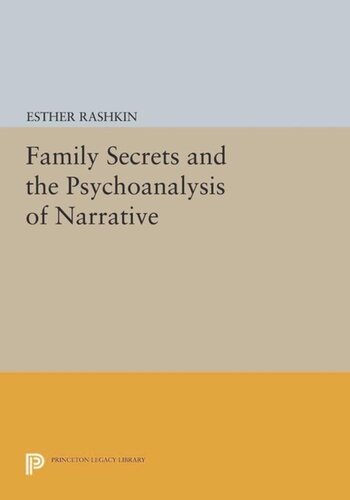

Most ebook files are in PDF format, so you can easily read them using various software such as Foxit Reader or directly on the Google Chrome browser.
Some ebook files are released by publishers in other formats such as .awz, .mobi, .epub, .fb2, etc. You may need to install specific software to read these formats on mobile/PC, such as Calibre.
Please read the tutorial at this link: https://ebookbell.com/faq
We offer FREE conversion to the popular formats you request; however, this may take some time. Therefore, right after payment, please email us, and we will try to provide the service as quickly as possible.
For some exceptional file formats or broken links (if any), please refrain from opening any disputes. Instead, email us first, and we will try to assist within a maximum of 6 hours.
EbookBell Team

4.4
92 reviewsFamily Secrets and the Psychoanalysis of Narrative is the first book to explore the implications of the psychoanalytic theory of the phantom for the study of narrative literature. A phantom is formed when a shameful, unspeakable secret is unwittingly transmitted, through cryptic language and behavior, transgenerationally from one family member to another. The "haunted" individual to whom the "encrypted" secret is communicated becomes the unwitting medium for someone else's voice--and the result is speech and conduct that appear incongruous or obsessive in a variety of ways. Through close readings of texts by Conrad, Villiers de l'Isle-Adam, Balzac, James, and Poe, Esther Rashkin reveals how shameful secrets, concealed within the unspoken family histories of fictive characters, can be reconstructed from their linguistic traces and can be shown not only to drive the characters' speech and behavior but also to generate their narratives. First articulated by the French psychoanalysts Nicolas Abraham and Maria Torok, the theory of the phantom here represents a radical departure from Freudian, Lacanian, and other psychoanalytic approaches to literary interpretation. In Rashkin's hands, it also provides a response to structuralist and poststructuralist critiques of character analysis, an alternative to deconstructive strategies of reading, and a new vantage point from which to consider problems of intertextuality, "authorship," and the formation and origins of narrative.
Originally published in 1992.
The Princeton Legacy Library uses the latest print-on-demand technology to again make available previously out-of-print books from the distinguished backlist of Princeton University Press. These editions preserve the original texts of these important books while presenting them in durable paperback and hardcover editions. The goal of the Princeton Legacy Library is to vastly increase access to the rich scholarly heritage found in the thousands of books published by Princeton University Press since its founding in 1905.